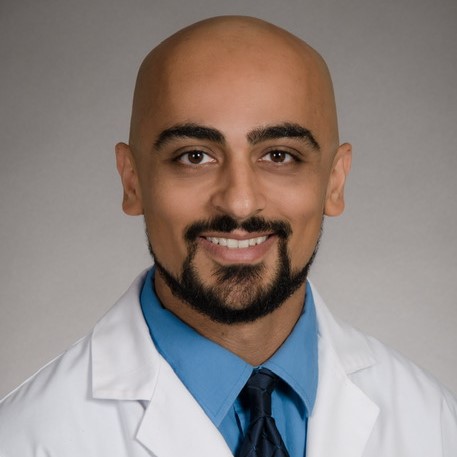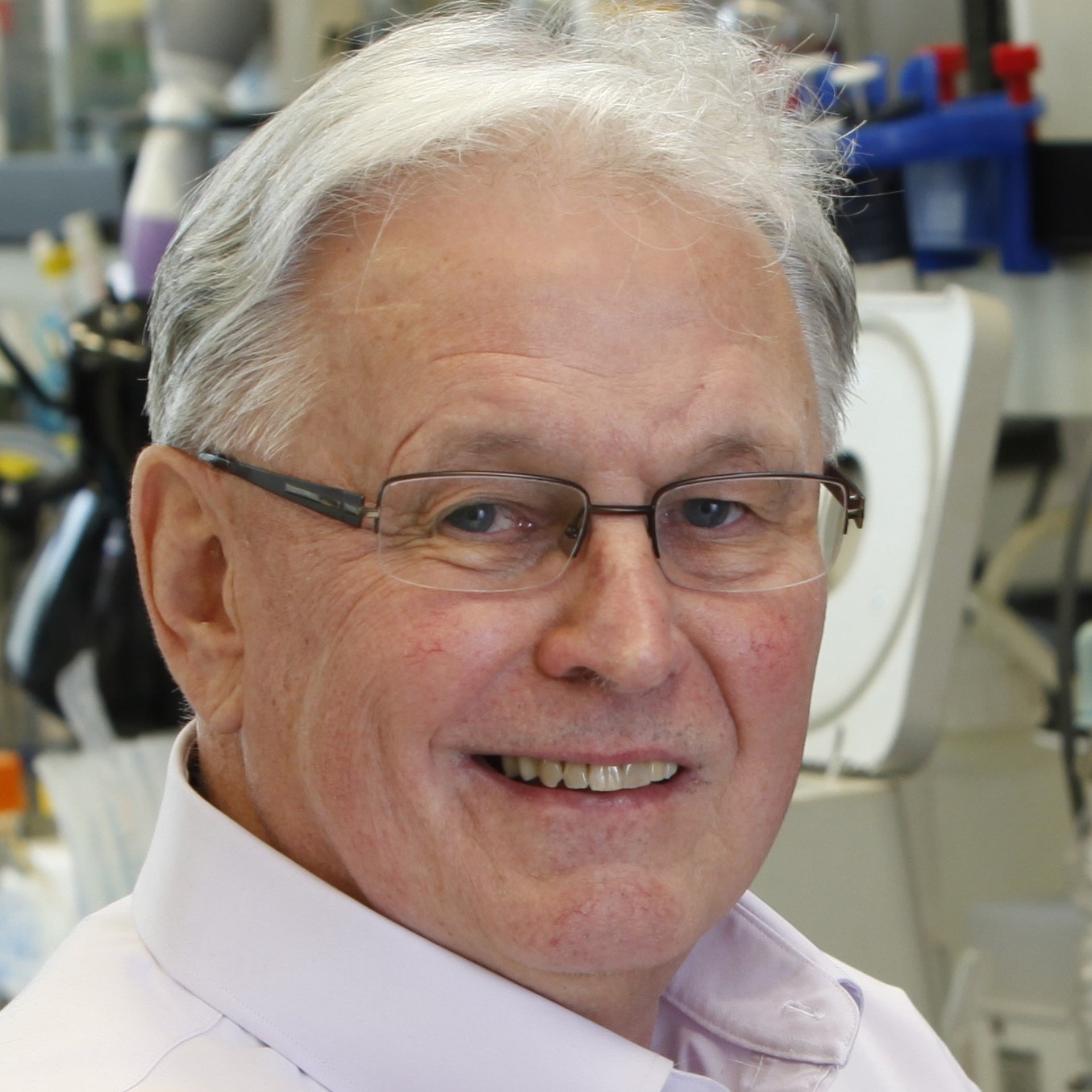
Michael Ailion, PhD
View Department Profile
Dr. Ailion’s laboratory seeks to identify proteins important for the biogenesis of insulin secretory granules and determining their cellular mechanism of action. Additionally, they are testing whether mutations in these proteins may lead to diabetes in mammalian systems.

Charles Alpers, MD
View Department Profile
My research employs morphologic studies that utilize human renal biopsies to validate in human diseases the insights gained from studies of animal models. Examples of this include studies on platelet-derived growth factor (PDGF) and their receptors, vascular endothelial growth factor (VEGF), osteopontin, cell cycle regulatory proteins, and matrix proteins in diabetic nephropathy. We continue to characterize the BTBR ob/ob mouse model of diabetic nephropathy and other diabetic complications, including elucidating mechanisms underlying the role of podocyte regeneration in the regression of diabetic nephropathy that can be induced in this model. My lab is then translating these findings into comparable studies in humans using renal biopsies accessioned at the University of Washington.

Bradley Anawalt, MD
View Department Profile
Dr. Anawalt's primary research interests are focused on the effects of testosterone in men.

William Banks, MD
View Department Profile
We investigate changes in the brain vasculature and blood-brain barrier that relate to diabetes and obesity. The areas investigated include the roles that changes in the blood-to-brain transport of leptin, ghrelin, and insulin play in obesity & anorexia to the disruption of the blood-brain barrier that occurs in diabetes.

James Blevins, PhD
View Department Profile
• The obesity epidemic and its associated complications have become major health concerns, highlighting the need to develop new and effective strategies to treat obesity
• The research in my lab focuses on understanding the mechanisms that contribute to the ability of the hypothalamic neuropeptide, oxytocin, to elicit weight loss in diet-induced obese rodents and nonhuman primates.
• Recent findings indicate that oxytocin may elicit weight loss, in part, by reducing food intake and by activating interscapular brown adipose tissue (IBAT) to increase energy expenditure.
• We are currently focused on determining whether the effects of oxytocin to increase energy expenditure and elicit weight loss require activation of sympathetic outflow to IBAT and if reducing oxytocin signaling in a CNS site that controls BAT contributes to leptin resistance, obesity and the anti-obesity effects of chronic systemic oxytocin.
• We will further investigate the translational question of whether chronic intranasal oxytocin elicits weight loss, activates BAT and improves glucose tolerance in a DIO nonhuman primate (rhesus monkey) model of metabolic syndrome.
• These findings will direct future studies to address the extent to which intranasal oxytocin may reverse obesity in humans by stimulating BAT thermogenesis.

Edward Boyko, MD, MPH
View Department Profile
My research program focuses on the epidemiology type 2 diabetes and its complications, associated metabolic disorders, and obesity. I have conducted research on the role of body composition in the development of type 2 diabetes and related conditions such as hypertension and metabolic syndrome. My interest in diabetes complications has focused on defining risk factors for diabetic foot ulcer and lower limb amputation.

Jane Buckner, MD
View Department Profile
Dr. Buckner’s research is focused on identifying the underlying the cellular and molecular mechanisms responsible for the dysregulation of the adaptive immune response in the setting of human autoimmune disease. Ongoing T1D projects in her lab are focused on 1) defining the mechanisms by which cytokine signaling pathways are altered in diabetes, and how this affects T cell function; 2) determining the functional and synergistic impact of genetic variants associated with type 1 diabetes on the adaptive immune response; and 3) developing regulatory T cell-based therapies for the prevention and treatment of T1D.

Judy Chen, MD, FACS, FASMBS
View Department Profile
Dr. Chen's clinical interests include advanced minimally invasive gastrointestinal surgery and laparoscopic metabolic weight management surgery.

Ian de Boer, MD, MS
View Department Profile
Dr. de Boer’s research focuses on the causes and consequences of diabetic kidney disease. His work ranges from epidemiology documenting the prevalence and risk factors for diabetic kidney disease, physiology studies designed to understand the underlying mechanisms of kidney disease, and clinical trials testing interventions to prevent and treat diabetic kidney disease. He practices clinical nephrology at the Puget Sound VA Medical Center.

Cole DeForest, PhD
View Department Profile
The DeForest Group seeks to integrate the governing principles of rational design with fundamental concepts from material science, synthetic chemistry, and stem cell biology to conceptualize, create, and exploit next-generation materials to address a variety of health-related problems. We are developing new classes of user-programmable hydrogels whose biochemical and biophysical properties can be tuned in time and space over a variety of scales. In partnership with the UWMDI, we are exploring the utility of these systems in treatment of diabetes.

Karen Foster-Schubert, MD
View Department Profile
My research interests regarding diabetes fall within the realm of understanding the role of bariatric/metabolic surgery to contribute to type 2 diabetes remission and amelioration. I am also interested in the epidemiology of bariatric/metabolic surgery within the Veteran population with type 2 diabetes, particularly with regards to policy impacts.

Ken Fujise, MD
View Department Profile
My team and I have focused on molecular biology and translational research of fortilin, a multifunctional
molecule. Fortilin is known to protect β-cells against stress and allow them to expand
as insulin requirement increases due to either weight gain or growth. In addition, fortilin drives
macrophages to take on oxidized LDL to become foam cells. My lab is the first to report that
fortilin facilitates atherosclerosis. We have condition-ready fortilin KO mice in stock in my
laboratory and look forward to collaborating with the distinguished faculty in the Institute.

Jose Garcia, MD, PhD
View Department Profile
Dr. Garcia is a translational researcher working on the role of ghrelin and other anabolic therapies in regulating appetite and body composition in the setting of sarcopenic obesity and other wasting disorders.

William Hagopian, MD, PhD
View Department Profile
Dr Hagopian researches human Type 1 diabetes, from immunogenetic biomarkers to predict and follow pathogenesis, to environmental triggers of disease, to immunotherapies to ameliorate disease. These can be used in large pathogenesis studies funded by NIH, in population-based public health approaches, in NIH or pharma-sponsored prevention trials, and for classification of risk or diagnosis in individuals.

Thomas Hatsukami, MD
View Department Profile
Dr. Chun Yuan, Professor in Radiology, and I co-direct the Vascular Imaging Laboratory at South Lake Union, and we have had a 20-year history of collaboration focused on the development and application of novel magnetic resonance imaging (MRI) techniques for characterization of cerebral and peripheral vascular disease. We are using these MRI techniques in prospective clinical studies to examine mechanisms of atherosclerosis progression, plaque features that are associated with an increased risk for stroke, and response to novel endovascular therapy aimed at reducing rates of arterial re-occlusion. We look forward to opportunities to collaborate with investigators at SLU to examine mechanisms of accelerated atherosclerosis progression and development of high-risk plaque amongst individuals with diabetes.

Jonathan Himmelfarb, MD
View Department Profile
I have been an independently funded NIH investigator for over twenty years, with a consistent focus on conducting clinical and translational research targeting the major complications of kidney disease, including diabetic kidney disease (DKD). This includes epidemiologic studies, longitudinal cohort studies, clinical trials, and in vitro studies of human organoids and organs on chips , and kidney precision medicine studies emphasizing molecular pathogenesis of DKD. The goals are to find new diagnostics and therapeutics that can delay ,prevent of cure DKD.

Andy Hoofnagle, MD, PhD
View Department Profile
As clinical and analytical chemists, the Hoofnagle laboratory applies analytical chemistry and complex workflows to investigations of diabetes from the pilot to the epidemiological scale.

Marshall Horwitz, MD, PhD
View Department Profile
A major interest of my laboratory is to map cell fate at single cell resolution by retrospectively inferring the order in which somatic mutations have accumulated. We have helped developed systems for doing so based on both naturally arising mutations as well as recording systems utilizing genome editing.

James Hurley, PhD
View Department Profile
Dr. Hurley’s research focuses on energy metabolism in the retina. He and his colleagues are studying metabolic relationships between cell types in the eye with a focus on how glucose from the blood reaches the retina and the roles that glycolysis and respiration play in the viability and function of retinal neurons and glia.

George Ioannou, MD, MS, FAASLD
View Department Profile
Dr. Ioannou is the Director of Hepatology at the VA Puget Sound and Co-Director of the VA's Hepatic Innovation Team for Network 20. He is a Professor of Medicine at the University of Washington and Chair of the AASLD Practice Guidelines Committee. His research interests include the role of cholesterol in the pathogenesis of NASH, the use of prediction models in liver disease, and the epidemiology of hepatocellular carcinoma.

Nina Isoherranen, PhD
View Department Profile
Dr. Isoherranen’s laboratory focuses on understanding how vitamin A homeostasis is altered in obesity and related comorbidities and how obesity and diabetes are related to alterations in vitamin A balance in humans. Her laboratory has ongoing research projects on physiologically-based pharmacokinetic modeling of how drug disposition changes in various disease states including diabetes and its comorbidities

Brian Iritani, DVM, PhD
View Department Profile
The Iritani lab studies the normal functions of oncoproteins and other signaling molecules in the development and function of immune cells, and how when dysregulated, aberrant expression or activity can result in autoimmune diseases or cancer. The Iritani lab has more recently focused on molecules that control immunometabolism, as well as skeletal muscle, cardiac muscle, and whole-body metabolism.

Saurabh Khandelwal MD, FACS, FASMBS
View Department Profile
Dr. Khandelwal’s research interests involve collaboration with the departments of medicine and endocrinology looking at the effects of bariatric surgery on central nervous system changes, as well as the effects of bariatric surgery on micronutrient metabolism. In addition, his research interests lie in outcomes research and bariatric surgery.

Mario Kratz, MD
View Department Profile
Dr. Kratz’s research is focused on the relationship between diet, obesity, and chronic diseases associated with obesity, including type 2 diabetes, cardiovascular disease, and cancer. His group conducts randomized controlled clinical feeding trials and other clinical and observational studies to improve our understanding of the relationship between diet, obesity, and chronic disease. One particular focus is on low-grade chronic adipose tissue inflammation and non-alcoholic fatty liver disease as crucial mechanistic links between diet composition, obesity, and disease.

Dianne Lattemann, PhD
View Department Profile
My lab has been interested in the effects of metabolism and metabolic hormones on aspects of brain function, including ingestive behaviors and responsivity to metabolic stressors such as hypoglycemia. Currently, we are interested in the effects of specific dietary fatty acids on brain function and behavior, including food reward behavior, and the cellular and nuclear mechanisms by which fatty acids may impact on CNS function (epigenetic and gene expression changes).

Aaron Lee, MD, MSCI
View Department Profile
Aaron Y. Lee MD MSCI is interested in using advanced computational techniques including deep learning to advance scientific understanding of diseases and solve disparities in diabetic eye care

Cecilia Lee, MD, MS
View Department Profile
As a medical retina and uveitis specialist, my research interests include Big Data, clinical epidemiology, and non-invasive ophthalmic imaging. I am interested in using large datasets to study potential ophthalmic biomarkers that are predictive of development, progression, and outcome of diabetic retinopathy.

Charles Murry, MD, PhD
View Department Profile
My laboratory studies stem cell biology and cardiovascular disease. Ongoing investigations include the role of metabolic substrate use, energy-sensing and mitochondrial turnover in maturation of stem cell-derived cardiomyocytes. Our long term goals are to develop therapies to induce myocardial regeneration to prevent and reverse heart failure.

Lisa Olmos de Koo, MD, MBA
View Department Profile
Dr. Olmos’ clinical research interests relate to all aspects of diabetic retinopathy, from prevention and screening via telemedicine to optimizing surgical techniques for the repair of the most complex retinal damage due to proliferative diabetic retinopathy. She is currently the physician lead for the UW Diabetic Retinopathy Screening PATH project. Additionally, she is the ophthalmic primary investigator on the Epidemiology of Diabetes Interventions and Complications (EDIC) study at the University of Washington and sits on the national Diabetes Control and Complications Trial (DCCT) / EDIC Ophthalmology Working Group (OWG).

Jerry Palmer, MD
View Department Profile
Dr. Palmer’s primary research focus is on Type 1 Diabetes. He directs the UW DCCT/EDIC clinical center and actively participates in the Type 1 Diabetes TrialNet international consortium. His laboratory is investigating the importance of islet autoimmunity in patients with phenotypic type 2 diabetes.

Kathryn Pepple, MD, PhD
View Department Profile
I am a clinician scientist specializing in the medical management of retinal and inflammatory diseases of the eye. Diabetes is a leading cause of retinal vascular disease, and inflammation contributes to disease severity. My laboratory studies the role of neutrophil extracellular traps (NETs) in ocular inflammation and how combined systemic and intraocular infection leads to chronic T cell mediated autoimmune uveitis. My clinical studies focus on developing non-invasive imaging techniques for use in the diagnosis and management of patients with vascular and inflammatory diseases of the retina and choroid.

Cate Pihoker, MD
View Department Profile
Dr. Pihoker's research interests include investigating factors that predict the clinical course of diabetes, diabetes typology and improving outcomes of children with diabetes.

Daniel Raftery, PhD
View Department Profile
Our group focuses on developing methods and applications in the field of metabolomics, which provides a broad view of both normal and altered metabolism in a ranges of diseases, including diabetes. Metabolomics helps us identify the effects of biological stresses such as diabetes on cellular metabolism, and to identify disease biomarkers as well as metabolic vulnerabilities to target for therapy. Our current focus is probing the role of altered mitochondrial metabolism in driving a number of disease related processes.

Kasra Rezaei, MD
View Department Profile
Ocular imaging is very important for early diagnosis and better manegement of diabetic retinopathy, ultra-wide field OCTA is a non invasive imaging modality that can be used for better management/monitoring of different stages of diabetic retinopathy. With collboration with department of Bio-engeering and Dr. Wangs' lab we are leading the innovation in ocular imaging.

Christian Roth, MD
View Department Profile
In recent years, my research has been focused on childhood obesity, including, functional neuroimaging of brain regions involved in appetite control as well as translational studies regarding metabolic changes associated with childhood obesity and risk for type 2 diabetes development. I am interested in evaluating neurobiological and metabolic risk factors before and after weight loss due to lifestyle intervention in obese children. In my lab, we analyze different peptides involved in the regulation of food intake and energy homeostasis, and we also test different agents as potential anti-obesity drugs.

Steven Saraf, MD
View Department Profile
Dr. Saraf’s research interests include advanced imaging techniques in diabetic retinopathy. He aims to apply optical coherence tomography angiography to more quantitatively assess the degree of capillary nonperfusion and/or neovascular growth in diabetic eyes. Such information may allow better understanding of the risk of disease progression and guide treatments to stabilize or reverse the complications of diabetic retinopathy.

Stuart Shankland, MD, MBA
View Department Profile
We study how diabetes injures the kidney glomerulus, with a focus on cell death and fibrosis. We also study the role of resident stem cells to replace cells called Podocytes that are lost in diabetes, as these cannot self-renew. Their replacement is critical to limit proteinuria and glomerular scarring.

Rong Tian, MD, PhD
View Department Profile
Dr. Tian is interested in the mechanistic role of mitochondrial function and metabolism in the development of diabetes complications

Dace Trence, MD
View Department Profile
Research interests include clinical application of new
technology in the self-management of diabetes mellitus, application of new pharmacologic tools in the management of diabetes mellitus, and education from patient to experienced clinician level in chronic disease management.

Kristina Utzschneider, MD
View Department Profile
My research career has been devoted to clinical investigation of the pathogenesis of type 2 diabetes and related conditions such as non-alcoholic fatty liver disease. I have been involved in multiple clinical research studies aimed at investigating ß-cell dysfunction and insulin sensitivity in people at risk for diabetes using both dietary and medication interventions. These studies have utilized oral and intravenous glucose tolerance tests, hyperinsulinemic-euglycemic clamps and mathematical modeling techniques to estimate insulin sensitivity and ß-cell function.

Ruikang Wang, MD
View Department Profile
My research is focused on developing novel and clinically useful biomedical imaging techniques for early diagnosis, treatment and management of human diseases including Diabetes. Specific research areas of interests include:
• Functional optical imaging using coherence gating (OCT) and confocal gating techniques
• Photoacoustic imaging
• Laser Doppler, speckle and intrinsic optical signal imaging
• Development of imaging technologies from bench to bedside.

Hunter Wessells, MD
View Department Profile
I lead a multidisciplinary team assessing the burden and impact of urological disorders associated with Type 1 diabetes, through an ancillary study of the Diabetes Control and Complications Trial/Epidemiology of Diabetes Intervention and Complication. My goal has been to understand the interaction of the genomic, metabolic, hormonal and epigenetic milieus of patients with diabetic complications. My current interest is in designing studies to identify high risk individuals and intervene with evidence based measures to reduce the risk of onset or worsening of symptoms.

Thomas Wight, PhD
View Department Profile
The Wight lab focuses on the role of the extracellular matrix (ECM), and particulalry the ECM components hyaluronan (HA) and proteoglycans, in the regulation of cell phenotype in diseases such as diabetes, rheumatoid arthritis, cancer, lung and cardiovascular disease.

Brent Wisse, MD
View Department Profile
Dr. Wisse’s research focuses on identifying key CNS signals whereby systemic inflammatory mediators cause anorexia and weight loss, including cachexia – the specific wasting of skeletal muscle.

Chun Yuan, PhD
View Department Profile
Dr. Yuan's research in vessel wall and atherosclerosis imaging has direct applications related to diabetes. Diabetics have a much higher rate disease. Heart and blood vessel disease, cholesterol, and blood pressure are common risk factors associated with diabetes. Dr. Yuan's research into these factors benefits our understanding of the development and etiology of atherosclerosis in diabetics as well as the general population.

Xue-Qiao Zhao, MD
View Department Profile
I have a long-standing interest in atherosclerosis and myocardial biology in diabetes. Currently, I have research studies in the following areas: lower extremity vascular disease in diabetes, myocardial fibrosis and SGLT-2 inhibition on its progression, and mitochondrial function in diabetes.

Sakeneh Zraika, PhD
View Department Profile
The Zraika lab studies the pathophysiology of type 2 diabetes, with an emphasis on the islet lesion that characterizes the disease. In this context, a major focus is elucidating the role of the protein neprilysin, in modulating insulin secretion, beta-cell mass and glucose homeostasis.
